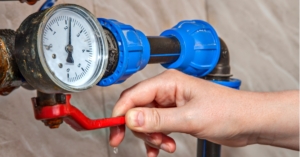7 Safety Tips Every Homeowner Should Know

Like most homeowners, you probably have your water heater strapped down and you flush out the gutters every spring. But there are many other tips that make a big difference in terms of both safety and thriftiness.
The home safety watchdogs at FamilyHandyman.com offer seven tips to start with:
Monitor furnace filters. Clogged furnace filters cost you in both efficiency and higher bills. For peak performance, replace them every 30 – 60 days. Keep track of when you replaced them last by buying several and labeling them by month.
Shut off the water when on vacation. Every insurance adjuster hears it: “We left town on Friday and returned Sunday evening to find thousands of dollars in water damage.” Before going on vacation, turn off the main water valve. In less than a minute, you can eliminate the most common cause of home damage.
Don’t leave the remote in your car. Anyone who breaks into your car can grab the remote for easy access to your garage, and the registration card in your glove box gives the thief your address. Ditch the remote on your visor and buy a keychain model you can take with you every time you leave the car.
Think about replacing pipes. If you have galvanized steel pipes in your home and low water flow at faucets, chances are the pipes are to blame. Galvanized pipe is prone to mineral buildup, which eventually chokes off the water flow. Replacing the pipes is the best cure, especially if you live in an older home.
Check the breaker first. When a light goes out or a switch doesn’t work, check the main electrical panel for a tripped circuit breaker. Look for a switch that’s not in line with the others. Flip it to the ‘off’ position and then back on.
Get low flow showerheads. Showerheads are heavy water users and major energy eaters, since 70 percent of the water used is heated. By reducing hot-water consumption, a low-flow unit can pay for itself in just one month. Many of today’s water-efficient showerheads now provide a high-flow feel.
Install ceiling fans. Moving air increases evaporation from your skin and helps keep you comfortable at higher thermostat settings.

